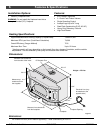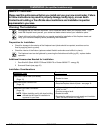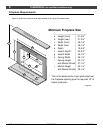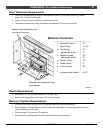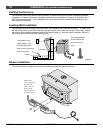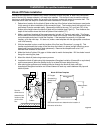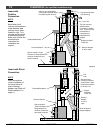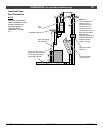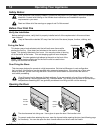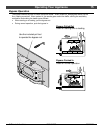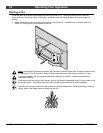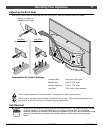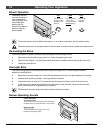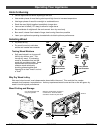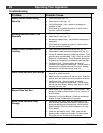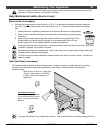
14 Operating Your Appliance
© Travis Industries 100-01163 4041129
Safety Notice:
If this appliance is not properly installed, a house fire may result. For your safety, follow the installation
directions. Contact local building or fire officials about restrictions and installation inspection
requirements in your area.
Read and follow all of the warnings on pages 4 and 5 of this manual.
Before Your First Fire
Verify the Installation
Before starting the stove, verify that it is properly installed and all of the requirements in this manual have
been followed.
Keep all flammable materials 36" away from the front of the stove (drapes, furniture, clothing, etc.).
Curing the Paint
This heater uses a heat-activated paint that will emit some fumes while
starting the first fire. Open doors and windows to the room to vent these
fumes. This typically lasts two to four hours. You may also notice oil burning
off of the interior of the heater. This rust-stopping agent will soon dissipate.
Door Gasket - The door gasket might adhere to the paint on the front of the
heater. Leave the door slightly ajar for the first fire and be careful when
opening the door after the first fire.
2 to 4 hours
Over-Firing the Stove
This stove was designed to operate at a high temperature. But due to differences in vent configuration,
fuel, and draft, this appliance can be operated at an excessive temperature. If the stove top or other area
starts to glow red, you are over-firing the stove. Shut the air control down to low and allow the stove to
cool before proceeding.
Over-firing may lead to damage of plated surfaces. If you are uncertain of over-firing conditions, we
suggest placing a stove thermometer (e.g. Rutland® Model 710) directly over the door on the stove top -
temperatures exceeding 800° are generally considered over-firing and will void the warranty.
Opening the Door
Rotate
the door
handle.
Swing
the door
open.
The door becomes hot during use. Use a glove to open the door if the handle is hot.
To prevent smoke from entering the room, open the bypass before opening the door (see following page
for directions). You can also open the door a small amount and let air enter the firebox.



